The anger and defiance on the faces of Iranian protesters, broadcast by news outlets worldwide, are entirely familiar to Dr. Rojin Mansouri. Before moving to Maine, she walked the same streets and felt the same emotions.
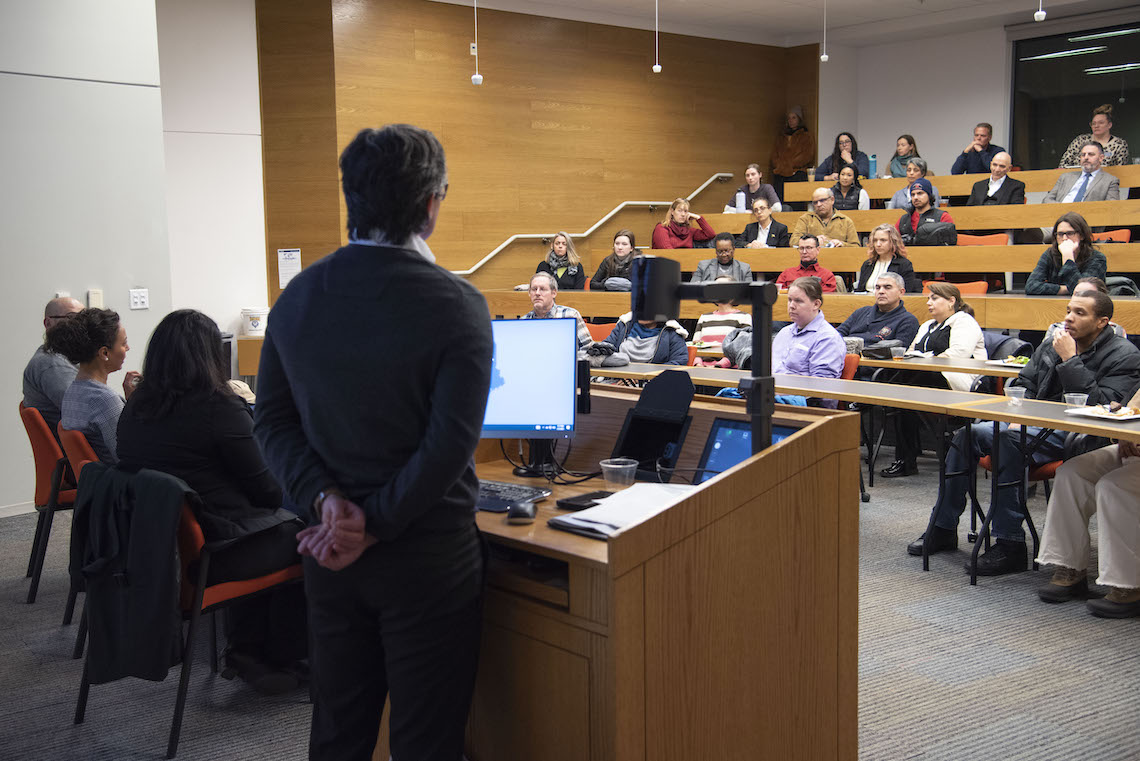
Mansouri is an Assistant Professor of Accounting at the University of Southern Maine. She grew up in Iran. The religious hardliners who run the Iranian government make laws that reflect their extreme interpretation of Islam. Even the way people dress is strictly enforced. Until recently, that job fell to the Guidance Patrol, also known as the morality police.
“I was arrested so many times I lost track of it,” Mansouri said.
Mansouri spoke about her experiences as part of a panel discussion called Women, Life, Liberty: Voices of Women in Iran and Beyond. Despite sub-zero temperatures outside, the topic still attracted an audience of about 50 people to the University’s Wishcamper Center in Portland on February 3.
“Women, Life, Liberty” is the slogan of Iran’s protesters and their allies around the world. The current wave of protests began last September in response to the death of Mahsa Amini. The morality police accused her of wearing her head scarf improperly and arrested her. Witnesses say she was beaten unconscious, never to wake up. She died three days later at the age of 22.
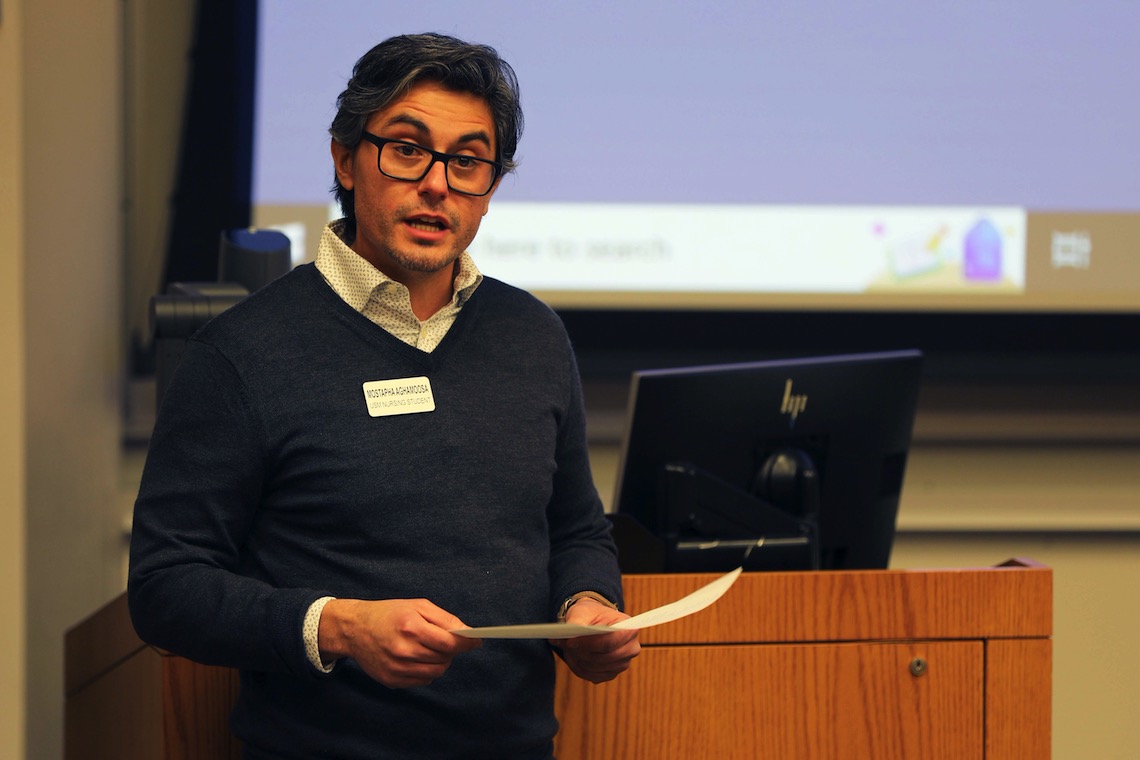
Women often took the lead in the protests that followed, burning their head scarves in the streets. The government tried to silence them with violence. Mass arrests, beatings, and deaths were common outcomes in confrontations with police. Executions of prisoners continue to drive up the death toll. In spite of it all, the protesters refuse to give up.
The news out of Iran infuriated Mostapha Aghamoosa, a student in the Accelerated Program at USM’s School of Nursing, on track to receive his bachelor’s degree this summer. His father emigrated from Iran to pursue an education.
“I have cousins in Iran, I reached out to them. Internet was being blocked. I couldn’t hear their voices, I couldn’t get any information from them when I wanted it,” Aghamoosa said. “I couldn’t sleep at night. I had to do something.”
The desire to act led Aghamoosa to the offices of the Women and Gender Studies Program (WGS). Finding no such opportunities on campus, he worked with WGS personnel to organize the panel discussion. Additional support was provided by the School of Nursing, the Office of Intercultural Student Affairs, USM Libraries, and the Greater Portland Immigrant Welcome Center.
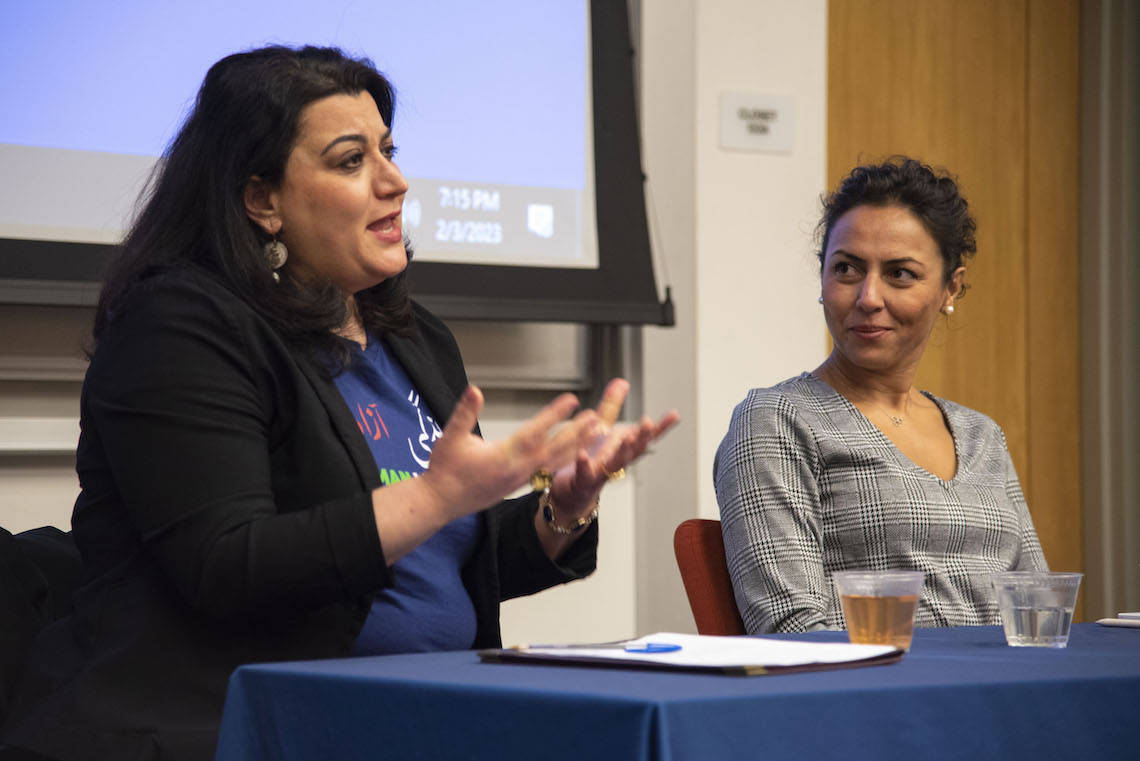
The biggest contributions came from the panelists like Roya Hejabian, who volunteered to relive some of their most painful memories in order to educate the audience. For Hejabian, it meant recounting her struggle to build a new life in Maine after leaving Iran 25 years ago.
Hejabian is a follower of the Bahá’í Faith, a minority religion in Iran that faces state-sponsored discrimination. Among the many restrictions imposed upon them, Bahá’ís are barred from seeking education beyond high school. Rather than submit, Hejabian fled. Today, she is a Licensed Clinical Social Worker at Maine Medical Center with a master’s degree from USM.
“I want to use this platform to be a voice for ethnic and religious minorities,” Hejabian said.
Hejabian’s fellow panelist, Shahin Khojastehzad, is also a fellow USM graduate. He recently left the beer café that he co-owned in downtown Portland. Since then, he’s been developing plans for a new business and raising his infant son. Khojastehzad was barely more than a baby when he arrived in Maine. His father served in the Iranian air force and used those connections to help other families leave Iran before finally getting his own family out.
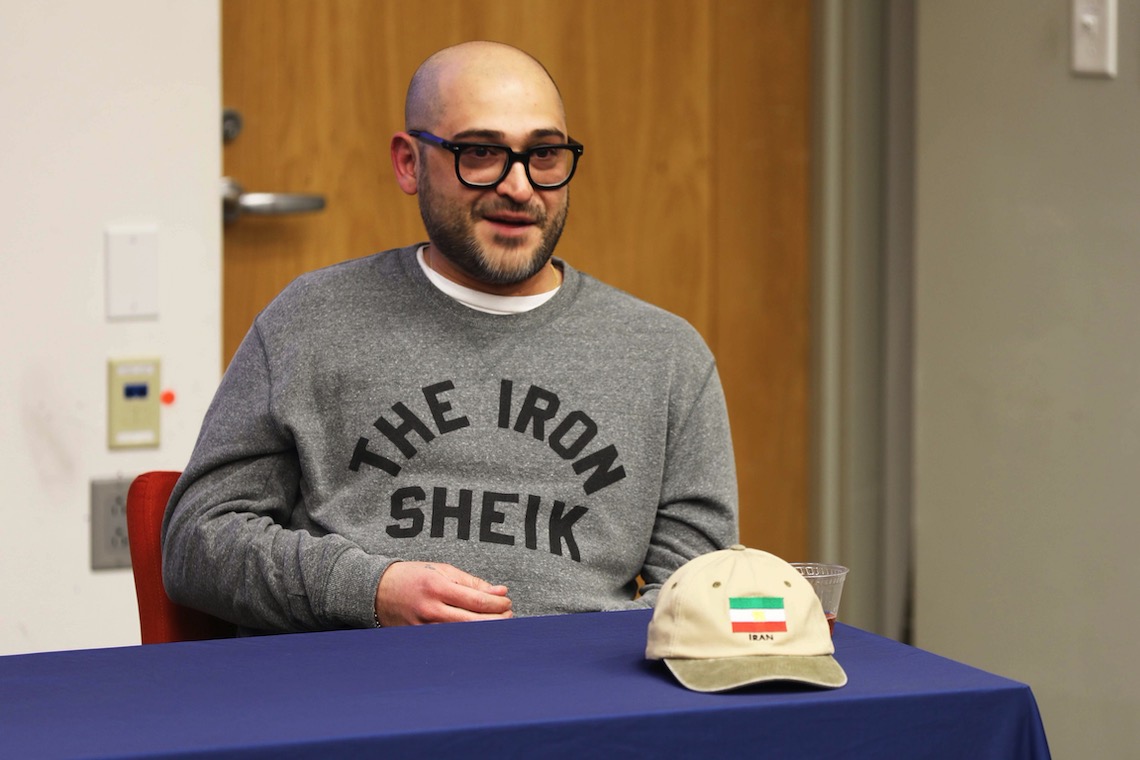
Khojastehzad doesn’t remember his early life in Iran. That hasn’t stopped some people from treating him like an outsider because of his name. He used to respond to racist slurs with his fists. As a new father, he now prefers non-violent methods of defending himself and his heritage.
“I live to a better ideal that’s a human ideal, not just a nation’s or country’s ideal,” Khojastehzad said.
After sharing their stories, the panel took questions from the audience. The topics thrown at them ranged from U.S. foreign policy to economic sanctions. The question that set off the longest discussion of the night came from a woman who wondered what actions she could take personally to help Iran’s protesters.
The answer, for Khojastehzad, was social media. He urged the audience to like and share credible news stories about the protests. The cumulative impact of those engagements goes beyond any single person’s circle of followers to influence the algorithm that drives content on platforms like Instagram and TikTok. The wider the news spreads, the harder it becomes for Iran’s leaders to control the narrative.
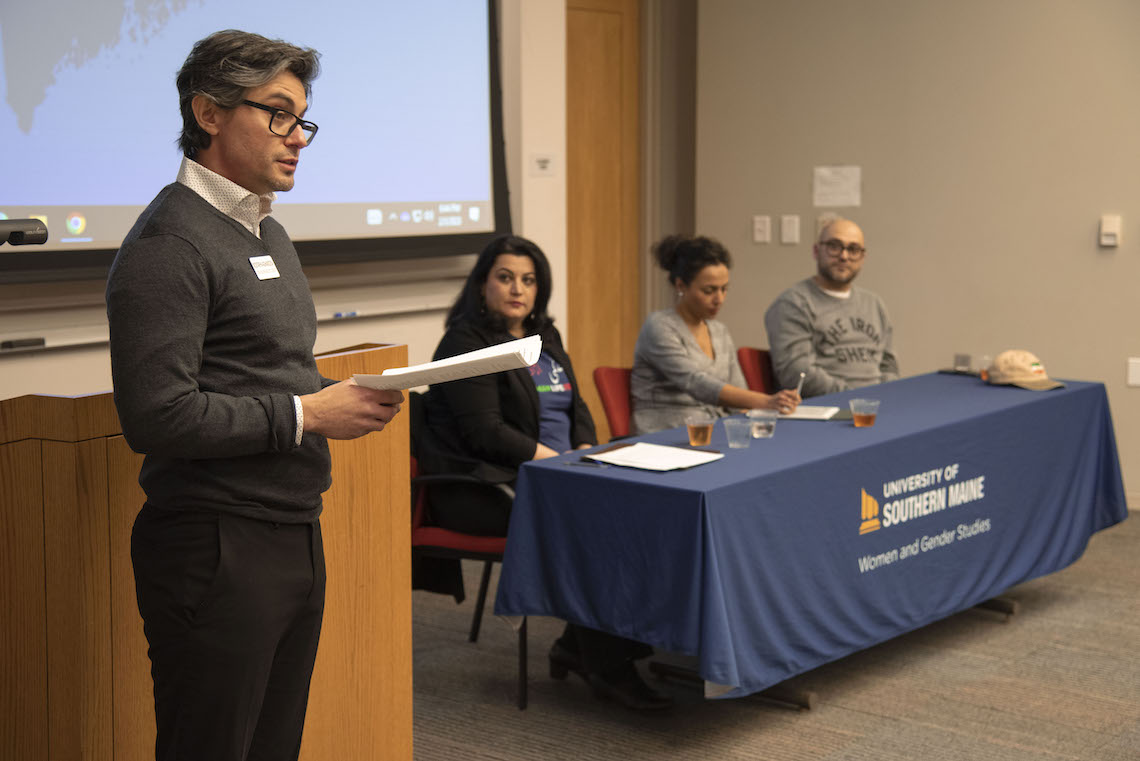
The panel posed questions as well as taking them. Slipping into her usual role as an educator, Mansouri asked students for their reaction at seeing people their own age risking their lives to demand greater freedom. The first hand that went up in the back of the auditorium belonged to Penelope Simpson, a sophomore in the WGS and Sociology programs.
“There’s no one way to do something. And I think every person comes from a really unique background and has a unique set of skills,” Simpson said. “What I will try to do in my own personal life is figure out what my skills are, what I bring to the table, and what I can do to help support people fighting oppression across the world and especially here in the United States.”
Her answer fulfilled Aghamoosa’s hope in organizing the event to foster a sense of empathy. Empathy for people on the other side of the world. And closer to home, empathy for people with different points of view.
“It’s just about community, really. I just want people to feel that,” Aghamoosa said.

